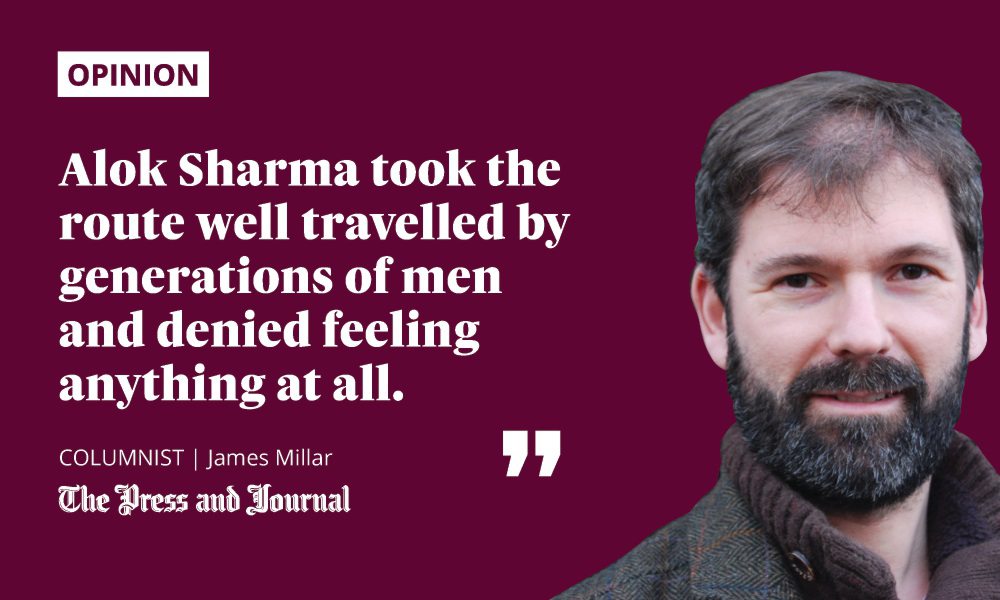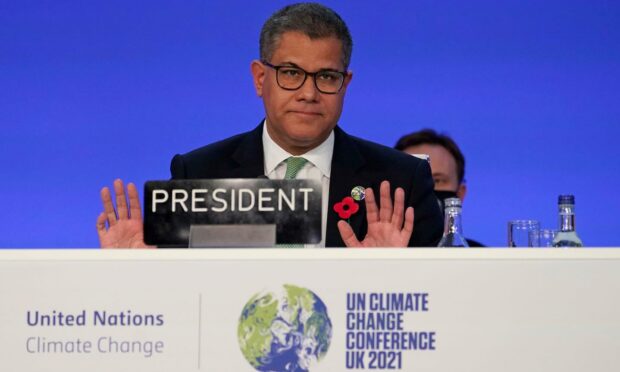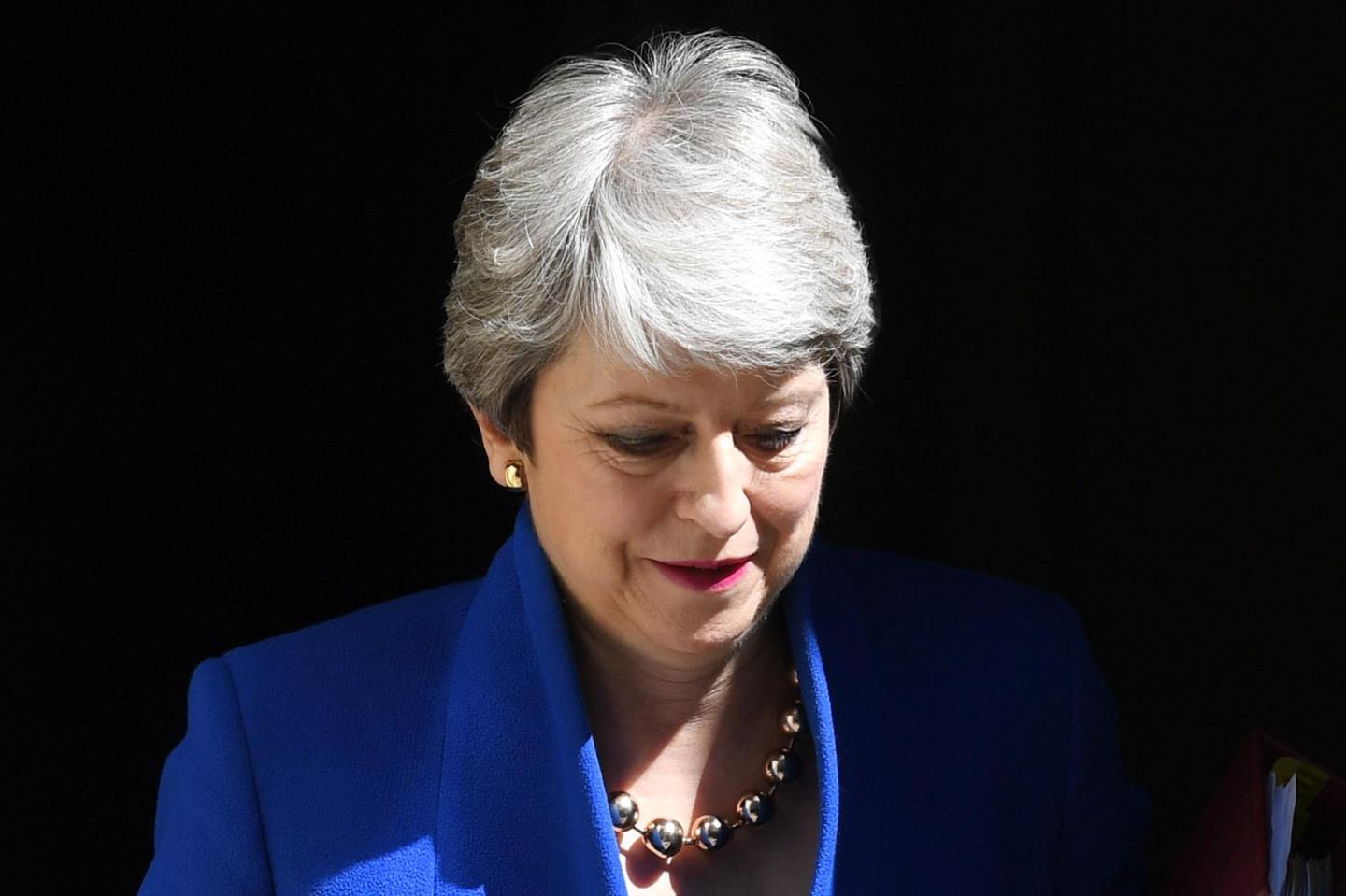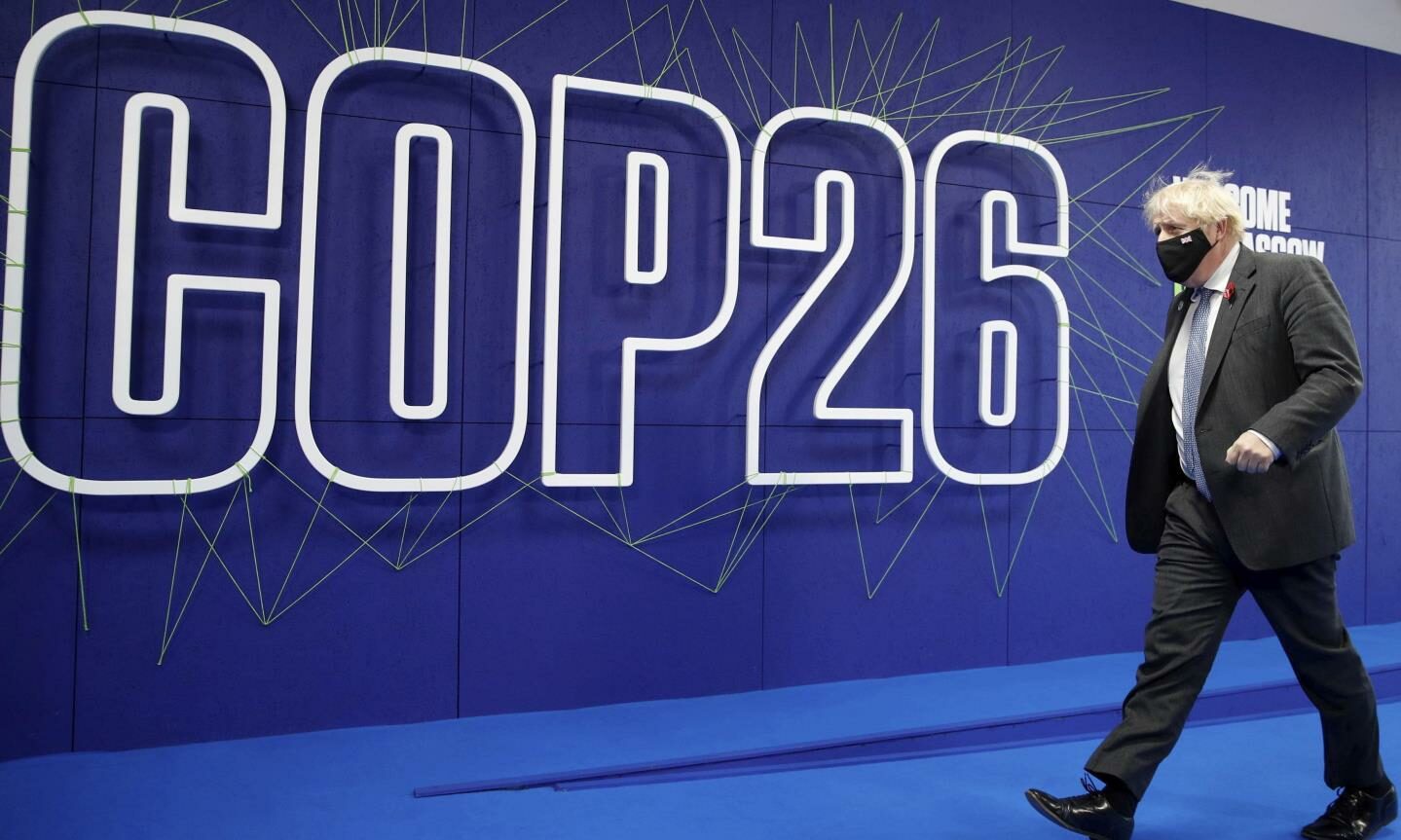Boris Johnson went into COP26 determined to talk about coal, cash and cars.
It was another C-word that seemed to dominate the press conference he called on Sunday to talk up the final climate deal: crying.
Shrek was on ITV2 at the same time as Sunday evening’s Downing Street briefing, so most folk would’ve been watching the dopey ogre and his sidekick rather than Boris Johnson and Alok Sharma.

But those who chose to tune into the news channel would’ve seen journalist after journalist bring up the fact that COP president, Sharma, shed a tear as the negotiations came to a close.
That was disappointing but not unexpected. The Westminster press pack has a weird obsession with tears. (It’s a sign of Covid progress that, this time last year, we were hung up on tiers as different parts of the country endured different levels of lockdown, and now the conversation has moved on to tears.)
UK’s no tolerance policy on crying
For the duration of Theresa May’s stay in Number 10 many journalists betrayed their inability to comprehend or to convey the intricacies of Brexit negotiations by instead repeatedly asking about the actions of the prime minister’s eyes. It was as if the male-dominated lobby, many of them schooled at some of the nation’s weirdest and finest establishments, had clocked that the PM was a woman, but the only thing many of them knew about women was that they cry sometimes. Unlike men, of course.
Sharma explained away his emotions, saying that he’d had very little sleep in the final days of negotiations
In her book on women in leadership, former Australian PM Julia Gillard identifies this concern with crying as a common tactic to “other” and demean women. In her interview with Gillard for the book, Theresa May plays down almost every other sexist treatment she faced as prime minister, but the crying thing was too much, even for her. May revealed that, not only did journalists ask every day if she’d cried, but they even asked if she was planning to cry in the future.
Given that track record, it was hardly surprising that, when Alok Sharma broke down at the end of the climate conference, the press pack zeroed in on crying rather than climate change.
But what was disappointing was Sharma’s response. He explained away his emotions, saying that he’d had very little sleep in the final days of negotiations.
It’s not clear why he didn’t get more kip. According to the tales emerging from the Glasgow conference, the representatives from China, the USA, India and the EU hammered out the final negotiations while Sharma looked on.
The EU has been criticised for failing to be vocal enough at COP26 but, evidently, they were not just in the room where the action happened but actively involved, while Sharma was sidelined. It’s a blunt example of how the UK has literally given up a seat at the table by leaving the European Union.
More emotion could have made COP26 a success
Sharma could’ve explained that he was crying for all the Pacific Islanders who will be dead or displaced because bigger nations couldn’t agree tighter targets on emissions. He could’ve put it down to his love of the English language and the abuse it just suffered by being mangled into the new phrase “phasing down” to describe China and India’s approach to coal power. If you have to invent new terms to get agreement, it’s unlikely the negotiation has gone well.
Instead, Sharma took the route well travelled by generations of men and denied feeling anything at all. Because men only cry after unusual feats of physical stamina, not because they actually express emotion.
Does he… realise which city he has been in? pic.twitter.com/VBEViZPjEp
— Adam Bienkov (@AdamBienkov) November 14, 2021
For further demonstration of how testosterone-fuelled this administration is, see also Boris Johnson’s apparent blooper in the same press conference when he referred to “COP in Edinburgh”. It doesn’t seem too much to expect the PM to know where he’s actually been, but such learned forgetfulness has probably served him well when answering to his wives down the years.
As a bit of biology, crying is quite extraordinary. The brain feels an emotion and converts that into something physical – a tangible tear. But, it’s also entirely normal and natural, something every human being on the planet has done at some time.
Alok Sharma chose to deny that shared humanity when he dismissed his tears as a manifestation of effort, not emotion.
If there had been more people comfortable with crying – call them women, “new men” or just functioning human beings – in the thick of it in Glasgow, perhaps there would have been a more significant outcome to the talks.
As it is, there’ll be many more tears shed as climate change accelerates.
James Millar is a political commentator, author and a former Westminster correspondent for The Sunday Post


